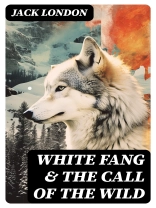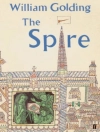In ‘White Fang’ and ‘The Call of the Wild’, Jack London vividly explores the themes of survival, nature, and the instinctual drive towards adaptation in harsh environments. These two novels, set against the backdrop of the unforgiving wilderness of the Yukon during the Klondike Gold Rush, showcase London’s remarkable literary style that marries realism with a deep appreciation for the natural world. His prose is often imbued with visceral imagery, manipulating language to evoke intense emotional responses as he chronicles the journeys of both man and beast navigating their primal instincts amidst the unforgiving landscape. London’s exploration of the relationship between humanity and nature conveys a broader philosophical inquiry into the very essence of existence and evolution. Jack London, born in 1876 to a working-class family in San Francisco, had firsthand exposure to the harsh realities of life through his early experiences as a laborer and gold prospector. His diverse encounters, including the struggles of the lower classes and his affinity for adventure, provided a rich tapestry of inspiration for his narratives. Consequently, both novels reflect London’s profound understanding of nature and the psychological complexity of his characters, drawn from his own experiences and philosophical beliefs about man’s struggle against the elements. ‘White Fang’ and ‘The Call of the Wild’ are essential readings for anyone interested in the interplay between civilization and the wild, beckoning readers to ponder the limits of human existence. Readers will be captivated by London’s ability to weave gripping tales that simultaneously challenge and illuminate the core principles of survival, resilience, and the intrinsic connection to the world around us.
Despre autor
Jack London (1876–1916) was a prolific American novelist and short story writer whose works are emblematic of the early 20th-century American literary scene. Born John Griffith Chaney in San Francisco, London’s works were often deeply infused with his own life experiences, including his adventures in the Klondike Gold Rush, which significantly influenced his most renowned novels, ‘The Call of the Wild’ (1903) and ‘White Fang’ (1906). These novels, with their vivid portrayal of the raw realities of life and survival in the far north, are viewed as quintessential examples of American naturalism and adventure fiction. London’s ability to explore complex themes such as survival and the clash between civilization and the natural world won him substantial acclaim. A prolific writer, London created a substantial body of work that extended beyond his adventure tales to include social commentary and explorations of human nature. His writing is characterized by a robust, direct style and a keen perception of both the environment and the human condition. Despite his relatively short life, London’s works have endured and are still widely read today, a testament to their importance in the American literary canon.












